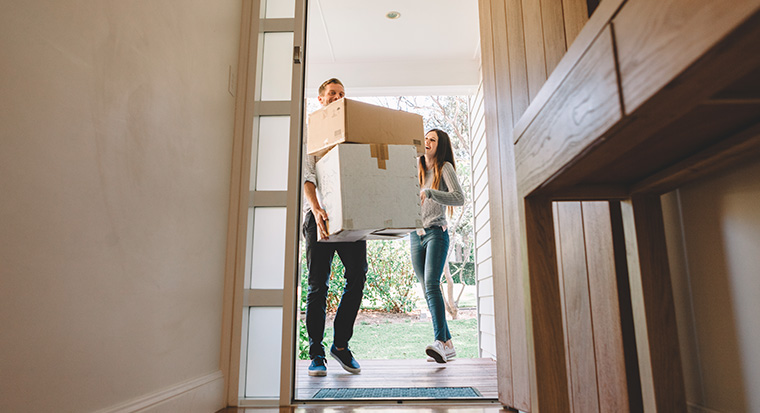Here’s a checklist of some general costs you'll need to consider, plus tips to help you manage your household's money:
Upfront and ongoing rental costs
- Rental (security) bond: A once-off, upfront payment that's usually the equivalent of up to 4 weeks' rent. If there’s no damage to the property at the end of your lease, you should get it back.
- Ongoing rent: The area that you want to live in can impact how much your weekly rental cost will be. Have a look on real estate websites to get an idea of what you can afford.
- Utility connection fees: You might be charged upfront, once-off fees to set up an account and connect your home with utilities.
- Utility bills: Ongoing gas, electricity, phone/internet bills.
- Contents insurance: It’s important to protect valuables like your smartphone, tablet, laptop, desktop, furniture, clothing and jewellery with contents insurance in case the unexpected happens, like theft or fire damage.
- Parking permit: You may need to pay to park near your new home.
- Maintenance: Additional services like a cleaner or gardener.
- Furniture & homewares: If your new place isn't fully-furnished, you’ll need to buy your own furniture. Also, you'll need to consider other homeware costs like appliances, bed linen, towels, crockery and cutlery.
- Moving costs: If you're not planning to do it by yourself, you'll need removalists and/or a truck or van to move your belongings to your new home.
Buying instead of renting? Learn more about saving for a home deposit or understanding the costs of buying your own home.
Money tips
1. Save up before you move
Paying the bond, then covering the ongoing rent and bills, can really stretch your finances. Saving up in advance can make things easier. Here are some tips:
- Open a savings account and set yourself a savings goal e.g. rental bond and 2 months’ rent. Check out our savings accounts.
- Calculate how much you can afford to save. Set a realistic target that you can comfortably stick to. Divide your income into money for food, rent, uni expenses, transport and entertainment, then see how much you’ve got left. If there’s not much left, see where you can cut back.
- Make regular, automated payments. Keep on top of your rent by setting up a regular payment. Or build up your savings sooner by setting up a regular transfer into your savings account. Already bank with us? You can do this in the CommBank app and NetBank.
- Set up an emergency fund: To avoid getting stung by unexpected expenses (e.g. car repairs), you can open another savings account purely as a buffer for emergencies. Here’s more on that.
If you haven't caused any damage to the property, make sure you get your rental bond back whenever you move out. It's a good idea to make note and take photos of any existing damage to the property – no matter how small – before or on the day you move in and send it to the landlord or real estate agent. That way, you can avoid any misunderstandings when it’s time to move out. And of course, make sure you always pay your rent on time.
2. Keep track of what you spend
Keeping track of your money (how much and what you’re spending it on) is crucial to affording to live life, and to help you plan for bigger expenses like holidays.
If you bank with us, you can turn on Transaction Notifications in the CommBank app so we can tell you instantly when you pay or are charged for something on your CommBank debit or credit card.
And with Spend Tracker and Spending Insights, we help you stay in control by showing you exactly what, where and how much you’re spending.
3. Manage your bills and pay on time
Sorting out how rent and bills will be split with your housemates early on will make life a lot easier. Being out of pocket while you’re waiting to be paid for a flatmate’s share of the rent, bills and weekly groceries can be frustrating, and expensive. If a bill is in your name and you don’t pay on time, it’s likely you’ll be charged a late payment fee. Do this too often and it may impact your credit score, which could make applying for a credit card, personal or home loan difficult in the future.
There are several ways we can help you to pay bills on time:
- Use PayID to make instant payments to someone regardless of who they bank with
- Set up recurring, instant transfers to pay someone from the CommBank app or NetBank
- Use Bill Sense to help you manage regular payments and bills


